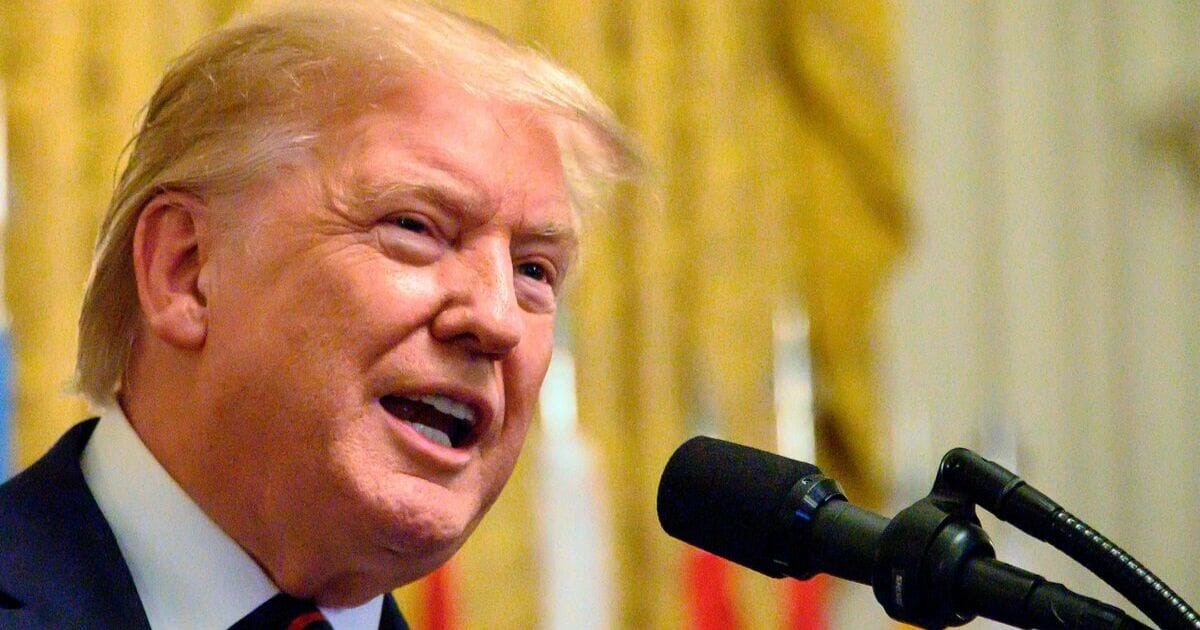
Newly Discovered Letter from Aussie Amb. Exposes NYT Hit Piece on Trump as Fraud
It seemed like another blow for the Trump administration, courtesy of The New York Times: News that Trump had pressured another world leader “to advance his personal political interests.”
This time it was Australian Prime Minister Scott Morrison. The Times reported Monday that Trump had not only “pushed” Morrison during a recent telephone call to cooperate with a Department of Justice inquiry into potential intelligence abuses in the run-up to the 2016 election, he’d also “curbed access to a transcript of the call … to a small group of aides.”
The call had been made, the report said, at the request of Attorney General William Barr, who’s overseeing the probe being conducted by John Durham, the United States attorney in Connecticut. Australian cooperation remains important since it was a reportedly a tip from Australia’s top diplomat that touched off an investigation of Trump aide George Papadopoulos.
Papadopoulos, over drinks at a wine bar in London in May of 2016, told Australian diplomat Alexander Downer that the Russians had dirt on Hillary Clinton via emails they had obtained. When emails from the DNC hack started appearing online weeks later, the Australians passed that information on to U.S. intelligence.
The Times, of course, doesn’t view the Durham investigation with any great fondness, to say nothing of the fact that the administration allegedly “pushed” the Australians to cooperate with it.
“The discussion with Mr. Morrison shows the extent to which Mr. Trump views the attorney general as a crucial partner: The president is using federal law enforcement powers to aid his political prospects, settle scores with his perceived ‘deep state’ enemies and show that the Mueller investigation had corrupt, partisan origins,” the report read.
All the slant that’s fit to print.
There are problems with this narrative, one of which is described in the report: Prime Minister Morrison apparently doesn’t feel he was “pushed” or pressured. But then, why should he? His government had already pledged its support before the call.
In a May letter to Attorney General Barr from the Australian ambassador to the United States, the ambassador promised “[t]he Australian Government will use its best endeavours to support your efforts” in the investigation.
“I refer to President Trump’s announcement on 24 May that you will investigate the origins of the Federal Bureau of Investigations probe into Russian links to the 2016 US election,” Australian Ambassador Joe Hockey wrote.
BREAKING: Australian Ambassador Joe Hockey’s May 2019 letter to US Attorney General offering to assist with investigation @9NewsAUS @TheTodayShow pic.twitter.com/rhotnG00Dh
— Kerrie Yaxley (@KerrieYaxley) September 30, 2019
“I note that the President referred to Australia, the United Kingdom and the Ukraine as potential stakeholders. Moreover, I note that he has declassified intelligence material to support your investigation.
“The Australian Government will use its best endeavours to support your efforts in this matter. While Australia’s former High Commissioner to the United Kingdom, The Hon. Alexander Downer, is no longer employed by the Government, we stand ready to provide you with all relevant information to support your inquiries.”
This squares pretty well with Morrison’s statement to The Times that “the Australian government has always been ready to assist and cooperate with efforts that help shed further light on the matters under investigation.”
This information, by the way, was provided 15 paragraphs into a 33-paragraphs story. This tidbit might have been a bit too important to bury there, one thinks.
Unlike the Ukraine call, there’s no claim of a quid pro quo or any sort of questionable activity. There’s no whistleblower report involved. And beyond that, Trump already had a pledge of cooperation from the Australians — something The Times either didn’t know about or conveniently forgot.
Take this graph, for instance: “Mr. Trump initiated the discussion with Mr. Morrison in recent weeks explicitly for the purpose of requesting Australia’s help in the review, according to the two people with knowledge of the discussion.”
The insinuation there, given that the Hockey letter isn’t mentioned in the story at all, is that the president was cold-calling Morrison to throw his diplomatic weight around in hope of obtaining assistance in the Justice Department’s investigation. But Australia was fully aware of the investigation and was on board with it. With that context added, that whole paragraph seems a lot less troubling.
That’s hardly all. Whole paragraphs are either invalidated by the Hockey letter or simply given over to heaping obloquy on the inquiry, which it’s clear the authors don’t believe should exist in the first place. In fact, I was mildly surprised not to find a recommendation that Christopher Steele be considered for knighthood for his selfless service in pursuit of the truth.
Once you consider the letter, almost any evidence concerning malfeasance is wiped from the story. Without any evidence of undue pressure placed on Prime Minister Morrison, this is just a nothingburger with a very flashy bun, served up primarily to discredit both Trump and any sort of critical eye cast upon the Russia “collusion” investigation for former special counsel Robert Mueller.
Meanwhile, the mainstream media wonders why America’s trust in it has withered, all while this sort of claptrap appears on the front page of one of its most prestigious publications.
CORRECTION: Oct. 2, 2019: This article originally described the May 2016 meeting in London between George Papadopoulos and Australian diplomat Alexander Downer as involving “heavy drinking,” based on a New York Times report from December 2017. Both Papadopoulos and Downer have since said they had only one drink.
Truth and Accuracy
We are committed to truth and accuracy in all of our journalism. Read our editorial standards.
Advertise with The Western Journal and reach millions of highly engaged readers, while supporting our work. Advertise Today.












